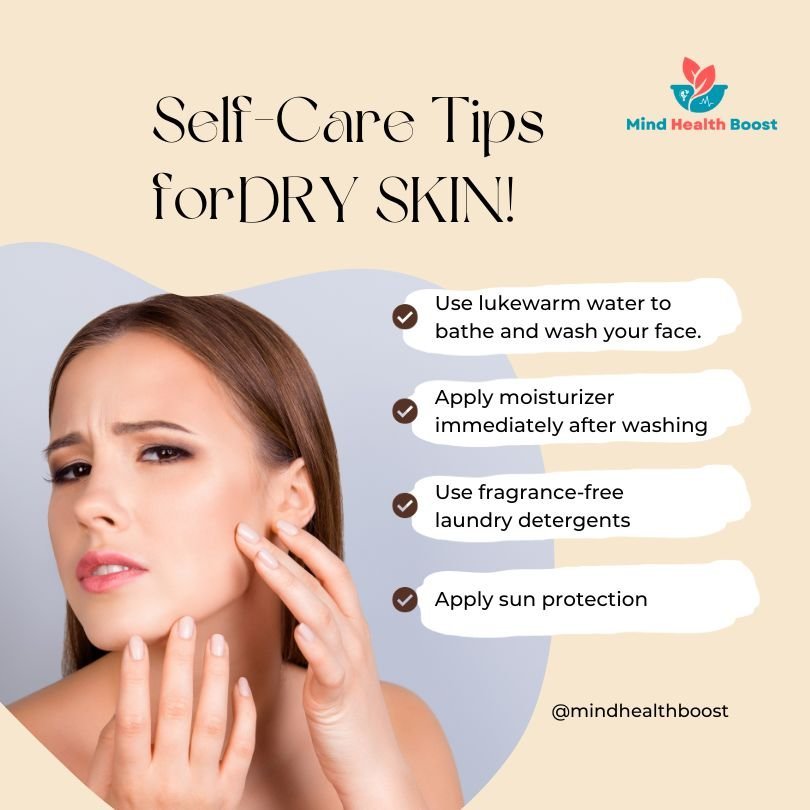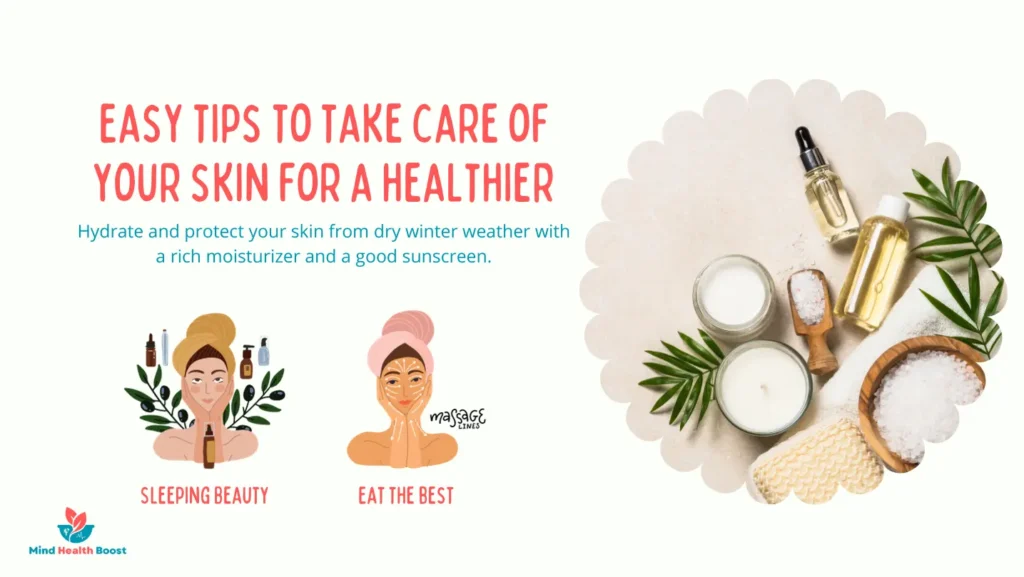The chill in the air means one thing: winter is coming. And for many of us, the change in seasons also brings a change to our skin. Cold temperatures and lower humidity levels can wreak havoc on your skin, leaving it feeling tight, flaky, itchy, and downright uncomfortable. Dry winter skin is incredibly common, but that doesn’t mean you have to just accept it. With the right skin care tips and products, you can nurture your skin and keep it looking and feeling soft and hydrated all season long.
In this comprehensive article, we will cover everything you need to know about combatting dry winter skin. We’ll explore the reasons behind winter skin dryness and how the cold months can disrupt your skin’s moisture barrier. We will offer advice for adjusting your skin care routine when the temperatures drop. You’ll learn about key ingredients to seek out and ingredients to avoid. We’ll provide specific product recommendations from cleansers and moisturizers to anti-aging serums and overnight creams. And we’ll share tips for supporting your skin from the inside-out through diet, supplements, and staying hydrated.
Best Treatments for Dry Winter Skin – encompassing guide to glowing winter skin:
- The causes of winter skin dryness: We’ll explain what happens to your skin when the humidity plummets. Learn why your oil glands produce less oil in the cold, leading to an impaired moisture barrier. Discover how lower air moisture allows water to evaporate more quickly from your skin’s surface.
- How to adjust your skin care routine for winter: Find out which products you should use less or avoid to prevent dryness. Learn how to protect your skin’s moisture barrier through strategic layering of serums, creams, and oils.
- Moisturizing superstar ingredients to look for: Discover which hard working ingredients have the research and clinical studies to back up their moisturizing claims. We share our favorites like glycerin, hyaluronic acid, ceramides, shea butter, and more.
- Products to hydrate every step of your routine: Enjoy specific recommendations on winter skin saviors to incorporate into your daily regimen. We’ll share choices from drugstore finds to luxury splurges for cleansers, toners, moisturizers, eye creams, lip treatments, masks, exfoliators, and more for dry and sensitive skin types.
- Lifestyle habits for hydration: Get tips for supporting your winter skin from the inside out. Learn how staying hydrated, eating key nutrients, managing stress levels, and adjusting your thermostat can improve dryness.
- Supplements for enhancing moisture: Explore the skin nourishing vitamins and botanicals that can hydrate skin and strengthen the moisture barrier when taken orally.
Get ready to take on the dry air and lower humidity of winter with confidence! By arming yourself with this intelligence on caring for dry skin in the colder months, you’ll be on your way to smooth, glowing skin all season long. Keep reading for more practical tips, suggested products, and expert advice for graceful winter skin.

The Best Ingredients and Products for Winter Skin Care
When it comes to caring for dry winter skin, it’s important to use products containing ingredients that will help to attract and seal in moisture. Here are some of the best ingredients to look for:
Hyaluronic Acid – Hyaluronic acid is a humectant, meaning it draws moisture from the environment into the skin. It can hold up to 1000 times its weight in water! Look for serums containing hyaluronic acid. Apply to damp skin and layer a moisturizer on top to seal in the moisture.
Ceramides – Ceramides are lipids naturally found in skin that help form the protective barrier. The best treatment for dry winter skin is using products with ceramides, like moisturizers, cleansers and toners. This helps repair the skin barrier damaged by winter weather.
Shea Butter – Shea butter is an ultra-hydrating ingredient derived from the shea tree nut. It melts at body temperature and provides a protective barrier that traps moisture in. Opt for lotions, creams and balms containing shea butter.
Glycerin – Glycerin is a humectant that draws moisture into the skin. It acts as a temporary barrier to prevent moisture loss. Seek out winter skin care products containing glycerin such as moisturizers, serums and cleansers.
Dimethicone – Dimethicone is a silicone that seals hydration into the skin by forming a protective barrier on the surface. Look for this as an ingredient in creams and lotions to combat dry winter skin.
Adjusting Your Skin Care Routine : Best Treatments for Dry Winter Skin
During the harsh winter months, you need to adjust your normal skin care routine to adequately hydrate and nourish your skin. Here are some tips:
- Cleanse less often to avoid stripping the skin
- Shorten shower times and use lukewarm water instead of hot
- Apply hydrating toner to damp skin after cleansing
- Use an occlusive moisturizer over serums to seal in moisture
- Exfoliate less often to prevent damage to the moisture barrier
- Use richer moisturizers and creams instead of lotions
- Apply a thick ointment or balm to lips and hands as needed
- Drink plenty of water and eat oils like olive oil to hydrate from within
By using the best ingredients for dry skin and adjusting your routine for the changing weather, you can defend your skin against winter dryness and damage. Focus on hydration and moisture retention and your skin will stay healthy and glowing through the winter season.

Closing Thoughts: Best Treatments for Dry Winter Skin
With the right combination of targeted ingredients and proper skin care habits, you can combat dry, flaky, winter skin. Focus on fortifying your skin’s moisture barrier and locking hydration into the deeper layers of the epidermis. This will help reduce tightness, irritation, and roughness even during the coldest, driest months.
Give your skin care routine a seasonal makeover. Shelve exfoliating acids and alcohol-based products that can be overly drying. Opt instead for ultra-hydrating cleansers, serums, toners and moisturizers packed with protective ingredients like ceramides, plant oils, humectants, emollients, and silicones. Read labels carefully and always patch test new products. Choosing fragrance-free options is best for sensitive skin.
Whileventuring outside in the elements, be diligent about applying moisturizer. Choose a rich balm or thick cream formula designed to hydrate and replenish lipids. Before exposing any bare skin, apply an occlusive ointment to boost the moisture barrier. Cover up with scarves, gloves, and protective clothing when possible.
Don’t forget your sun protection, even in winter. The sun’s rays can still damage unprotected skin. Look for moisturizers with SPF 30 or greater to safeguard while hydrating. Reapply every two hours when outdoors.
Make hydration a priority all winter long. Drink at least 64 ounces of water daily and eat juicy fruits and vegetables at mealtime. Run a humidifier at home and at the office to counteract dry indoor air. Avoid extremely hot showers and limit bath time to 5-10 minutes to prevent moisture loss.
Take your winter skin care regimen to the next level with smart oral supplements. Fish oils, vitamin E, and antioxidants can nourish from within. Consider a daily probiotic to support skin barrier function. Check with your doctor before adding any new supplements to your diet.
Don’t let seasonal dryness deter you from enjoying everything winter has to offer. With knowledge of the best moisturizing ingredients, making smart product choices, and adopting hydrating lifestyle habits, you can defend your skin from the drying effects of winter. Your regimen for glowing, healthy skin doesn’t have to take a break when the temperature drops. With proper care, your skin will stay soft, smooth, and vibrant no matter what the weather brings.
FAQs
Why does my skin get so dry in the winter?
The cold, dry air of winter decreases moisture in the skin. Lower humidity outdoors and from indoor heating allows moisture to evaporate more quickly from the skin’s surface. Dryness is also caused by a decrease in sebum, the oil that helps keep skin moisturized and supple. The skin barrier can become compromised, resulting in flakiness, cracking, and itchiness.
Get to know more about healthy Diet:What ingredients should I look for in winter moisturizers?
The best ingredients to combat dry winter skin are humectants like hyaluronic acid and glycerin which draw moisture into the skin, emollients like shea butter that smooth and soften, and ceramides or oils which help repair the skin barrier. Silicones like dimethicone also create a protective layer to seal in hydration.
How often should I apply moisturizer in the winter?
It’s important to apply moisturizer more frequently in the winter to protect the skin from cold outdoor air and dry indoor heat. Apply hydrating creams or lotions to the face and body at least twice daily. Reapply face creams after washing hands. Use rich hand and lip balms throughout the day as needed. Applying moisturizer after bathing also helps seal in hydration.
Should I exfoliate less in winter?
Gentle exfoliation 1-2 times per week can help slough off dry, flaky skin. However, limit scrubs and acids to prevent damage to the skin barrier. Avoid harsh exfoliants like scrubs with walnut shells or microbeads. Look for gels with soft jojoba beads or enzymes like fruit acids for gentle exfoliation.
How can I protect my skin when I go outside?
Exposure to cold, dry air can dehydrate skin so it’s important to protect it outdoors. Apply a thick, occlusive moisturizer or ointment before going outside. Cover up exposed skin with gloves, hats, scarves, and protective clothing. Use moisturizers and lip balms containing SPF 30 or greater when outdoors.






















